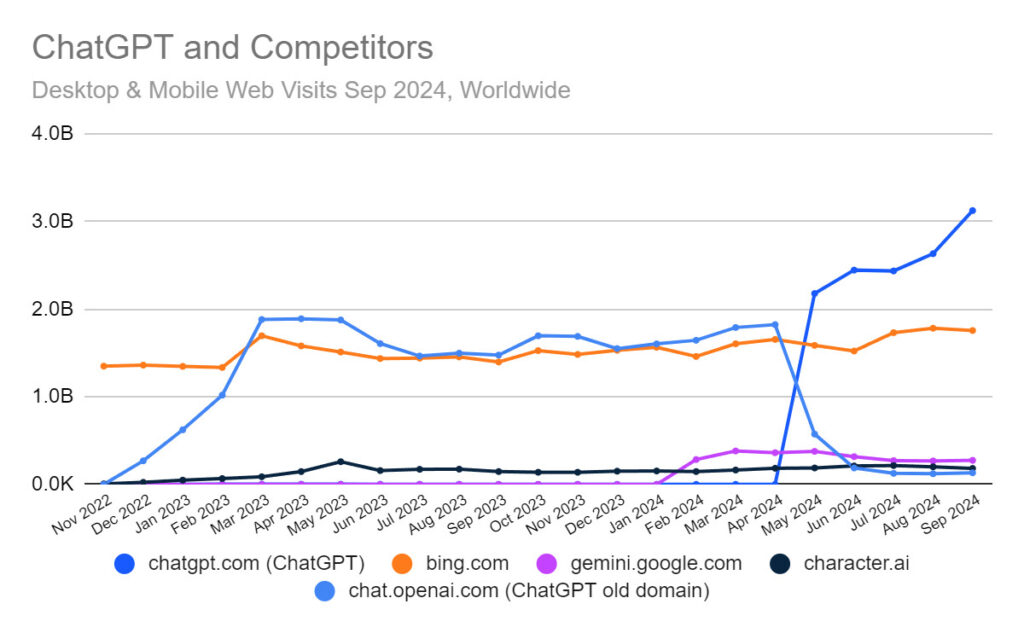Top News
Meta FAIR Releases Eight New AI Research Artifacts—Models, Datasets, and Tools to Inspire the AI Community
Meta’s Fundamental AI Research (FAIR) team has unveiled eight new AI research artifacts, including models, datasets, and tools, aimed at advancing machine intelligence. The highlights of the release are:
An upgraded version of the Meta Segment Anything Model 2.1 (SAM 2.1), an image and video segmentation tool with enhanced object tracking and differentiation capabilities
Meta Spirit LM, an open-source language model that integrates speech and text for more natural-sounding speech generation
Layer Skip, an end-to-end solution for accelerating large language model generation times
SALSA, a new code for benchmarking AI-based attacks on cryptographic systems,
And the Self-Taught Evaluator, a method for generating synthetic preference data to train reward models without human annotations.
The release underscores Meta’s commitment to open science and the advancement of AI technology.
Perplexity AI seeks valuation of about $9 billion in new funding round
Perplexity AI, an artificial intelligence search engine startup, is aiming to raise its valuation to approximately $9 billion in its upcoming funding round, a significant increase from its $3 billion valuation in June. The company is planning to raise around $500 million in this round, marking its fourth funding round this year, amidst a surge in investor interest in generative AI. However, Perplexity has been embroiled in controversy, with allegations of plagiarism from major media outlets, including the New York Times, accusing the company of scraping their content to generate its search results. Despite these accusations, which Perplexity denies, the company continues to compete in the rapidly growing generative AI market, currently dominated by OpenAI.
xAI, Elon Musk’s AI startup, launches an API
Elon Musk’s AI startup, xAI, has launched an API for its flagship generative AI model, Grok. The API, currently offering a single model “grok-beta”, is priced at $5 per million input tokens or $15 per million output tokens. The API supports function calling, connecting Grok models to external tools like databases and search engines, and future documentation suggests the inclusion of vision models for text and image analysis. Despite facing legal challenges and competition from other AI companies, xAI, which raised $6 billion in funding, is leveraging data from Musk’s various companies to train its models and improve technology across these enterprises.
ByteDance intern fired for planting malicious code in AI models
ByteDance, the parent company of TikTok, recently confirmed that an intern was fired in August for planting malicious code in its AI models. The intern, who was part of the commercial technology team, was accused of “maliciously interfering with the model training tasks” for a research project. Despite online rumors suggesting that the sabotage involved over 8,000 graphical processing units and caused ByteDance to lose tens of millions of dollars, the company stated that these claims were greatly exaggerated. ByteDance also clarified that none of its commercial projects or online businesses were affected by the intern’s actions, and that the intern’s university and industry associations were notified of the incident.
Other News
Tools
Unlocking autonomous agent capabilities with Microsoft Copilot Studio – Microsoft Copilot Studio introduces new capabilities for building autonomous agents
Google’s NotebookLM Now Lets You Customize Its AI Podcasts – Google’s NotebookLM now allows users to customize AI podcasts by adding prompts for specific content, offering a new level of control over the generated audio output.
Adobe’s new image rotation tool is one of the most impressive AI concepts we’ve seen – Adobe’s new AI concept, Project Turntable, allows users to easily rotate 2D vector art in 3D while maintaining its original 2D appearance, using AI to fill in gaps and potentially revolutionizing the creative process.
Suno just got a major upgrade — now you can replace a verse or chorus – Suno’s new ‘replace section’ feature allows Pro and Premium tier users to easily alter lyrics and add instrument breaks in AI-generated tracks, addressing the repetitive and sometimes odd nature of AI-generated lyrics.
How to give your favorite pictures and videos an AI-written soundtrack – AI-powered Suno app introduces Suno Scenes, a feature that creates custom soundtracks for your photos and videos, enhancing your storytelling with unique music.
Amazon Ads launches a new AI Video generator – Amazon Ads has launched a new AI Video generator, allowing brands to explore an AI gallery for re-creatable ad formats and themes to spark inspiration, with unlimited storage for advertisers’ creations.
ChatGPT comes to Windows – OpenAI has released a dedicated Windows app for ChatGPT, allowing users to access the AI-powered chatbot platform and its newest model improvements, with certain limitations compared to other clients.
Midjourney plans to let anyone on the web edit images with AI – Midjourney plans to release an upgraded web tool that allows users to edit uploaded images using generative AI, but the company is facing challenges related to AI-generated image labeling, moderation, and the potential for misuse.
Meta Teams With Blumhouse and Filmmakers Like Casey Affleck to Test Movie Gen AI Tool – aiming to gather feedback and improve the generative-AI video models before its wide release on Instagram in 2025.
Business
ChatGPT Topped 3 Billion Visits in September – ChatGPT’s web traffic has been steadily increasing, reaching 3.1 billion visits in September 2024, marking a significant growth compared to the previous year.
AI helped the feds catch $1 billion of fraud in one year. And it’s just getting started – AI has helped the US Treasury Department recover $1 billion worth of check fraud in fiscal 2024, nearly triple the amount recovered in the prior fiscal year, and is being used to prevent and recover more than $4 billion worth of fraud overall.
Microsoft and OpenAI’s Close Partnership Shows Signs of Fraying – The partnership between Microsoft and OpenAI, once described as “the best bromance in tech” by OpenAI’s CEO Sam Altman, is showing signs of strain.
Four Truths About OpenAI’s Wild Financial Position – OpenAI’s financial presentation reveals its bizarre financial position, including billions in projected losses, a large payout to Microsoft, and a heavy reliance on ChatGPT for revenue.
Archetype AI Raises $13M, Emerges from Stealth with Newton, a Foundation Model for Understanding the Physical World – Newton is a foundation model that integrates real-time sensor data with natural language to decode hidden patterns in the physical world, aiming to solve real-world problems and create new solutions.
Qualcomm reveals AI smartphone chip – Qualcomm’s latest smartphone chip, the Snapdragon 8 Elite, is equipped with advanced AI capabilities to enhance video calls, recognize real-world objects, and power generative AI apps
Bain & Co, OpenAI expand partnership to sell AI tools to clients – Bain & Co expands partnership with OpenAI to sell AI tools, including ChatGPT, to clients and establish an OpenAI Center of Excellence, with plans to co-design solutions for retail and healthcare life sciences industries.
Research
Thinking LLMs: General Instruction Following with Thought Generation – LLMs are trained to follow instructions and answer questions like human experts, but this article proposes a method to equip them with the ability to think before responding, leading to superior performance on various tasks.
Anthropic is testing AI’s capacity for sabotage – Anthropic is evaluating its potential to deceive or subvert systems, and concluding that current AI models pose a low risk for malicious capabilities.
DeepSeek AI Releases Janus: A 1.3B Multimodal Model with Image Generation Capabilities – Janus, a new multimodal AI model, employs two distinct visual encoding pathways to unify understanding and generation, outperforming prior models in both tasks and demonstrating enhanced flexibility and efficiency.
NVIDIA Unveils “Industry Leading†Open-Source Llama-3.1-Nemotron-70B-Instruct LLM – NVIDIA unveils its newest Llama-3.1-Nemotron-70B-Instruct LLM, designed to refine user responses and surpassing industry benchmarks, including OpenAI’s GPT-4o.
Mistral releases new AI models optimized for edge devices – Mistral releases new AI models optimized for edge devices, offering compute-efficient and low-latency solutions for on-device translation, smart assistants, local analytics, and autonomous robotics.
LatticeFlow’s LLM framework takes a first stab at benchmarking Big AI’s compliance with EU AI Act – LatticeFlow’s LLM framework provides the first technical interpretation of the EU AI Act, offering an open source validation framework for AI model compliance and publishing model evaluations of mainstream LLMs
IBM debuts open source Granite 3.0 LLMs for enterprise AI – IBM debuts open source Granite 3.0 LLMs for enterprise AI under the Open Source Initiative (OSI) approved Apache 2.0 open-source license
Zyphra Releases Zamba2-7B: A State-of-the-Art Small Language Model – Zyphra’s Zamba2-7B is a state-of-the-art small language model that outperforms competitors in quality and speed, designed for efficient on-device processing and democratizing access to advanced AI.
AutoDAN-Turbo: A Lifelong Agent for Strategy Self-Exploration to Jailbreak LLMs – AutoDAN-Turbo is a black-box jailbreak method that can automatically discover jailbreak strategies without human intervention, achieving higher attack success rates on public benchmarks and GPT-4-1106-turbo.
Pixtral 12B – Pixtral-12B is a 12-billion-parameter multimodal language model that excels in understanding natural images and documents, achieving leading performance on various benchmarks and outperforming larger models.
Agent S: An Open Agentic Framework that Uses Computers Like a Human – Agent S is an open agentic framework that uses a Graphical User Interface to automate complex computer tasks, addressing challenges in acquiring domain-specific knowledge, planning over long task horizons, and handling dynamic interfaces.
Baichuan-Omni Technical Report – Introducing Baichuan-Omni, the first open-source 7B Multimodal Large Language Model (MLLM) capable of processing and analyzing image, video, audio, and text modalities, aiming to advance multimodal understanding and real-time interaction in practical applications.
Concerns
People Are Asking AI for Child Pornography – AI chatbot service Muah.AI is being used to request and potentially generate child-sexual-abuse material, highlighting the broader issue of AI’s potential for abuse and the challenges of monitoring and regulating such platforms.
Millions of People Are Using Abusive AI ‘Nudify’ Bots on Telegram – At least 50 bots are claiming to create explicit photos or videos of people, leading to a significant increase in the creation and use of explicit deepfake content.
AI Detectors Falsely Accuse Students of Cheating—With Big Consequences – leading to serious consequences for individuals like Moira Olmsted who returned to school after taking time off to start a family during the pandemic.
OpenAI says ChatGPT treats us all the same (most of the time) – ChatGPT’s responses are mostly unaffected by names, but in some cases, it reflects harmful stereotyping, showing a need for further study on first-person fairness in AI.
A Lawsuit Against Perplexity Calls Out Fake News Hallucinations – Perplexity is facing a lawsuit from Dow Jones and the New York Post for allegedly creating fake sections of news stories and falsely attributing them to publishers, which could potentially confuse and harm the news-consuming public.
Policy
US Weighs Capping Exports of AI Chips From Nvidia and AMD to Some Countries – US considers capping exports of AI chips from Nvidia and AMD to certain countries, potentially limiting their AI capabilities.
How Tesla’s plans for ‘unsupervised FSD’ and robotaxis could run into red tape – Tesla’s plans for ‘unsupervised FSD’ and robotaxis could face regulatory challenges in California and Texas due to the need for permits and exemptions, potentially impacting the company’s timeline and stock performance.
Explainers
Thinking Like an AI – Using AI effectively involves understanding how Large Language Models work, including next token prediction, training data, and memory constraints, and the importance of hands-on experience in learning how to push AI in more interesting directions.
$2 H100s: How the GPU Rental Bubble Burst – The GPU rental bubble has burst, leading to a significant drop in H100 prices due to oversupply, reserved compute resales, and a decline in new foundation model companies, making it more cost-effective to rent rather than buy.
Source: Read MoreÂ


